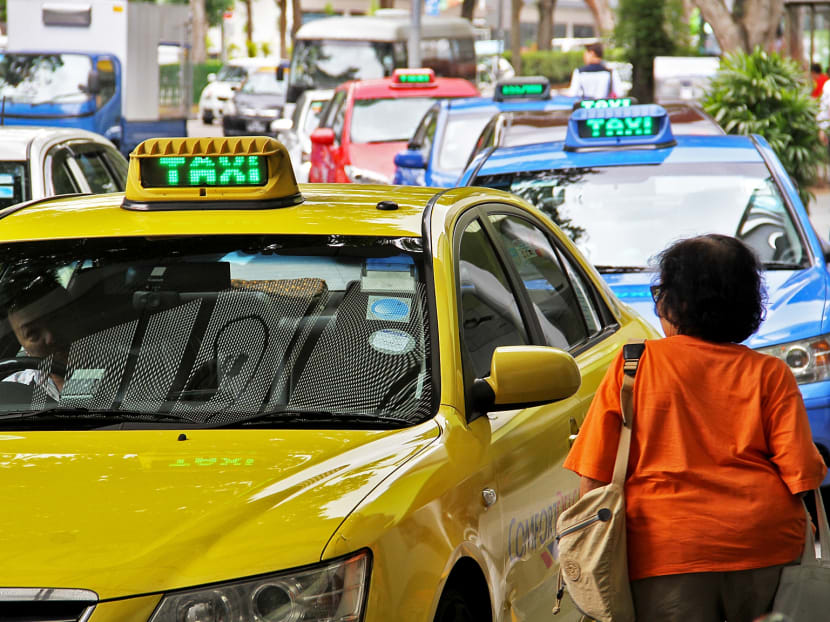Cabbies may ignore street commuters during peak hours: Experts
SINGAPORE — With surge pricing, taxi drivers could spend less time plying the roads for customers and more time ferrying passengers matched to them through a mobile application.
SINGAPORE — With surge pricing, taxi drivers could spend less time plying the roads for customers and more time ferrying passengers matched to them through a mobile application.
In contrast, the situation may be less rosy for commuters who are unwilling or unable to pay higher fares, as they could face the possible scenario of being ignored on the streets during peak hours, transport analysts said on Friday (March 17).
They were responding to the news that the authorities have given their approval for taxi operators to implement dynamic pricing for bookings via mobile apps.
Economist Walter Theseira from the Singapore University of Social Sciences (SUSS) said that dynamic pricing is contingent on demand-and-supply patterns.
While this would reduce excess waiting for taxis during peak periods and improve a driver’s earnings, it came at the expense of a commuter’s purse strings.
While the new pricing will be an added option for commuters, those who flag cabs on the streets or make telephone bookings were likely to see a reduced quality of service “because during periods of high dynamic pricing, taxi drivers will find it more profitable to exclusively take mobile bookings”, Dr Theseira said.
Agreeing, Comfort taxi driver Henry Tay, 48, said that driving patterns may change over time, as cabbies cash in on high surge-pricing during peak periods.
“What happens to the elderly who have to go to the hospital for check-ups in the morning then? Are we cruel enough to skin them alive? What about the handicapped?” he asked.
Prime Group chairman Neo Nam Heng agreed that the operator would have no control over taxi drivers opting to take bookings during periods of high fixed fares and forgoing street-hailing commuters, but a spokesperson from Trans-Cab does not agree, saying that taxi drivers might not necessarily be able to get bookings given the sheer number of cabbies using the new service.
In response to queries from TODAY, Grab maintained that commuters using its app have two options: Either use GrabTaxi for metered fares, or book through the new service for fixed-fare taxi rides.
Asked whether the introduction of surge pricing would eat into the profit margins of private-hire car drivers, National University of Singapore transport researcher Lee Der-Horng said that Grab and Uber drivers still have the advantage, given the prevalence of promotional codes offered by these apps.
However, Dr Theseira pointed out that commuters might prefer taking taxis as “perceptions of safety and consistency of service are higher”, assuming fares for both modes of transport are similar.
SUSS urban transport researcher Park Byung Joon warned that a price war might erupt further down the road, with Grab and Uber trying to match each other “tit-for-tat” in their surge-pricing model and commission taken from drivers, even though Uber was the pioneer in surge pricing.
Graduate student Priscilla Gan, 26, who uses ride-hailing apps three times a week, said that she would consider taking the new fare option for taxis, though she would compare the fares with that of private-hire cars beforehand.
Auditor Tan Shu Hwee, 26, who takes both taxis and private-hire cars frequently, said that she would turn to taxis during surge pricing only if the rates are comparable to those from Grab and Uber.
“There’ll be more supply in the market (at the same price),” she said.







